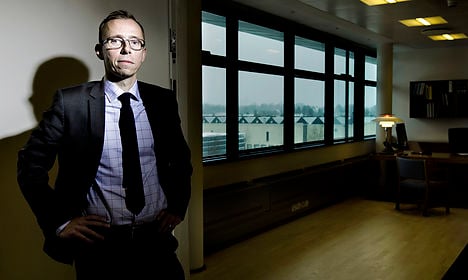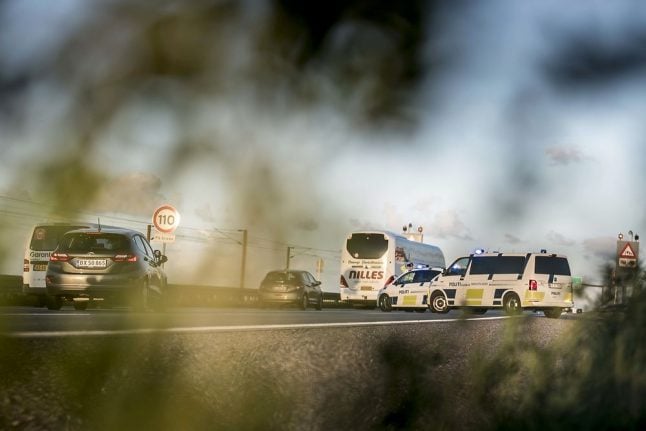PET
Head of Danish security agency PET steps down
UPDATED: Ahead of the release of a report on authorities' reactions to the February shootings in Copenhagen, the Justice Ministry announced that Jens Madsen will no longer lead PET.
Published: 6 May 2015 21:22 CEST

The Justice Ministry announced Madsen's departure on Wednesday. Photo: Mads Nissen/Scanpix
The head of Denmark's intelligence agency on Wednesday stepped down as an investigation criticised parts of the police response to February's deadly twin attacks in Copenhagen.
"After careful consideration, I have agreed with the Permanent Secretary at the Ministry of Justice and the National Commissioner of Police that I will now undertake new tasks to develop Danish police," Jens Madsen of the Danish Security and Intelligence Service (PET) said in a statement.
His resignation came hours before the publication of a police report that revealed it took almost four hours from the moment gunman Omar El-Hussein shot dead a filmmaker outside a cultural centre, until police were deployed outside Copenhagen's main synagogue, where a Jewish man was later killed.
"That is too long, it's obviously not satisfactory. It can't be explained," Justice Minister Mette Frederiksen said at a press conference.
She declined to comment on whether Madsen was stepping down as a result of the delayed police response, saying only that she "noted" his resignation. He was appointed to the position in January last year.
By the time El-Hussein approached the synagogue — hours after he failed to enter an event on Islam and free speech — six police had been posted there but they were unable to stop him from killing an unarmed Jewish security guard.
El-Hussein, 22, was killed in a shootout with police in the early hours of February 15.
He had been released early from prison two weeks before the attacks after serving a term for aggravated assault, raising fears he may have become radicalised behind bars.
Despite prison services flagging him up as being at risk of radicalisation, PET said it had "no reason" to believe he was planning the attacks.
Madsen took on leadership of PET on January 1st, 2014 after his predecessor Jakob Scharf stepped down in the midst of a scandal involving former Justice Minister Morten Bødskov lying to parliament about security risks related to a parliamentary committee's planned visit to Christiania.
Url copied to clipboard!


 Please whitelist us to continue reading.
Please whitelist us to continue reading.
Member comments